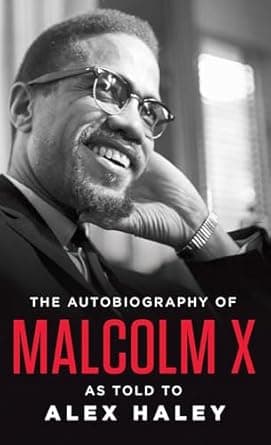
Book Stats
647
Upvotes
80
Downvotes
+567
Net Score
The Autobiography of Malcolm X
by Malcolm X and Alex Haley
Description
The powerful life story of Malcolm X, tracing his transformation from street criminal to civil rights leader in one of the most influential autobiographies ever written.
Malcolm X's autobiography, told to Alex Haley in the months before his assassination, chronicles one of the most dramatic personal transformations in American history. From his childhood as Malcolm Little through his years as Detroit Red, a street hustler and criminal, to his emergence as Malcolm X, a powerful voice for Black nationalism and human rights.
The book's power lies in Malcolm's unflinching honesty about his own life and his ability to analyze the social forces that shaped his experience. His descriptions of racism in the North challenge liberal assumptions about regional differences, while his account of prison education shows how incarceration can become a form of liberation for those who use it to develop their minds.
Malcolm's conversion to the Nation of Islam while in prison represents the book's central turning point. His embrace of Elijah Muhammad's teachings provides him with both personal redemption and a framework for understanding Black oppression in America. The discipline and pride he gains through Islam transform him from a self-destructive criminal into a powerful leader.
The autobiography's treatment of Malcolm's pilgrimage to Mecca reveals his continued intellectual and spiritual growth. His encounters with Muslims of all races challenges his previous belief in Black racial superiority, leading to a more universal vision of human rights and social justice.
Malcolm's break with the Nation of Islam and his final evolution toward international human rights activism shows his willingness to revise his views based on new experience and knowledge. This intellectual flexibility, combined with his uncompromising commitment to justice, makes him a unique figure in American history.
The book's exploration of Malcolm's relationship with the civil rights movement reveals the complexity of Black political thought in the 1960s. His criticism of integration and nonviolence provided an alternative perspective that influenced later movements for Black power and cultural nationalism.
The Autobiography of Malcolm X remains one of the most important works of African American literature, demonstrating how personal narrative can illuminate larger social and political issues. Its influence extends far beyond the civil rights movement, inspiring readers around the world who face oppression and seek personal transformation.